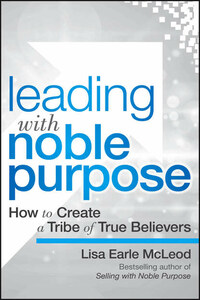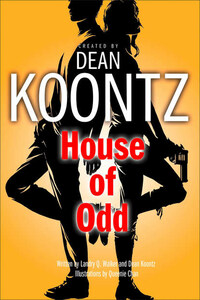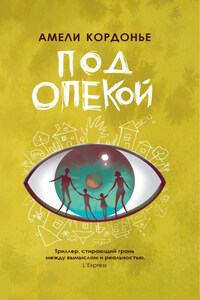Copyright © 2016 by Lisa Earle McLeod. All rights reserved.
Published by John Wiley & Sons, Inc., Hoboken, New Jersey.
Published simultaneously in Canada.
No part of this publication may be reproduced, stored in a retrieval system, or transmitted in any form or by any means, electronic, mechanical, photocopying, recording, scanning, or otherwise, except as permitted under Section 107 or 108 of the 1976 United States Copyright Act, without either the prior written permission of the Publisher, or authorization through payment of the appropriate per-copy fee to the Copyright Clearance Center, Inc., 222 Rosewood Drive, Danvers, MA 01923, (978) 750–8400, fax (978) 750–4470, or on the web at www.copyright.com. Requests to the Publisher for permission should be addressed to the Permissions Department, John Wiley & Sons, Inc., 111 River Street, Hoboken, NJ 07030, (201) 748–6011, fax (201) 748–6008, or online at http://www.wiley.com/go/permissions.
Limit of Liability/Disclaimer of Warranty: While the publisher and author have used their best efforts in preparing this book, they make no representations or warranties with respect to the accuracy or completeness of the contents of this book and specifically disclaim any implied warranties of merchantability or fitness for a particular purpose. No warranty may be created or extended by sales representatives or written sales materials. The advice and strategies contained herein may not be suitable for your situation. You should consult with a professional where appropriate. Neither the publisher nor author shall be liable for any loss of profit or any other commercial damages, including but not limited to special, incidental, consequential, or other damages.
For general information on our other products and services or for technical support, please contact our Customer Care Department within the United States at (800) 762–2974, outside the United States at (317) 572–3993 or fax (317) 572–4002.
Wiley also publishes its books in a variety of electronic formats. Some content that appears in print may not be available in electronic books. For more information about Wiley products, visit our website at www.wiley.com.
Library of Congress Cataloging-in-Publication Data is available:
978-1-119-11980-7 (hbk)
978-1-119-11983-8 (epdf)
978-1-119-11981-4 (epub)
Cover Design: Wiley
Cover Image: © iStock.com/VikaSuh
Printed in the United States of America
Introduction: Why Work Matters
What if your work mattered so much to you that – on your deathbed – you found yourself wishing for one more day at the office?
While I was writing this book, my father died. In the months before his death, I had time to reminisce with him about his life's high points, among them, his job.
My father worked in banking. At the height of his career he was Director of Mergers and Acquisitions for the Federal Savings and Loan Insurance Corporation, the FSLIC, which later merged into the FDIC. During the S&L crisis of the 1980s he ran a team whose purpose was to merge failing banks with solvent banks, so taxpayers wouldn't have to foot the bill if an S&L went under.
In his office, my father kept a flipchart tracking how much money his department saved the U.S. taxpayers. He updated that chart weekly and shared it with anyone who walked into his office. Financial experts estimated that my father and his team saved the taxpayers billions of dollars. The stakes were high. The work was difficult, but his team was passionate about it because they knew it mattered.
We've all heard the adage: No one on their deathbed wishes they'd spent more time at the office. I think that adage is misunderstood. It belittles the role that meaningful work plays in our lives. A 2005 study of terminal cancer patients found that, once the patients finished talking about their families, some of their most meaningful experiences involved doing work that mattered with people they cared about.
That study mirrors what I experienced with my father. My father loved his family. By the standards of the day, he spent significantly more time with his kids than most men. He changed diapers, coached, did home projects, camped. He even learned how to score gymnastics to help my high school team.
But he also loved his job. When my father had fallen ill, reading notes from his former colleagues was a high point for him. He loved talking about the good times, and the bad, the obstacles they'd faced, the deals that had gone well, and the deals that hadn't. My father swelled with pride as he talked about his team and the impact they'd had on the banking system.
It's easy to say family is the most important thing. Yet, watching my father reflect upon his life, it's obvious to me – work matters. We spend most of our waking hours at work, so those hours ought to mean something.
Viktor Frankl once said, “Life is never made unbearable by circumstances, but only by lack of meaning and purpose.”








